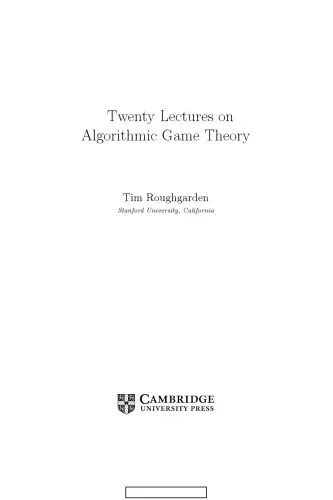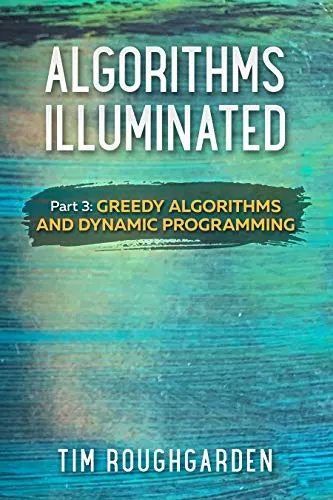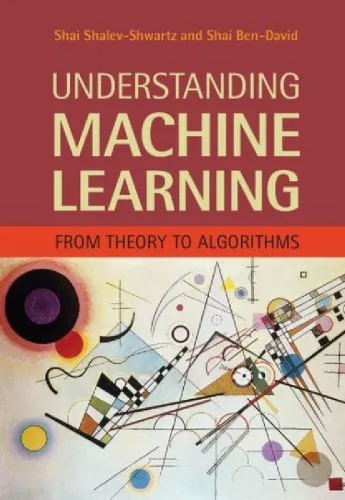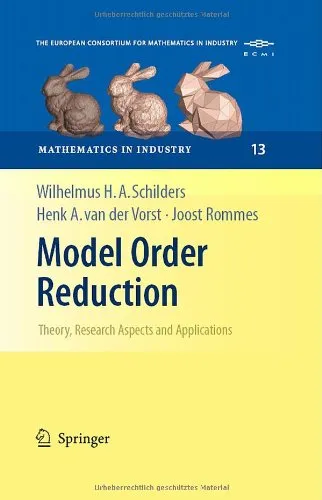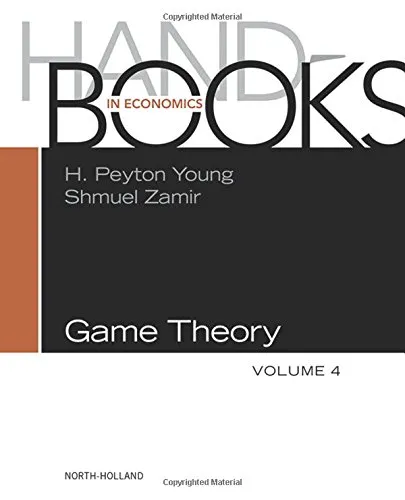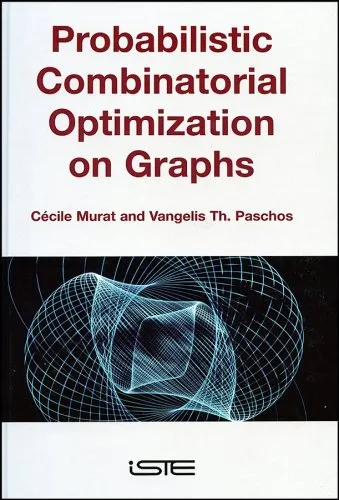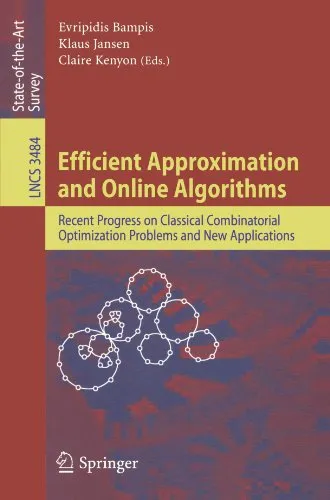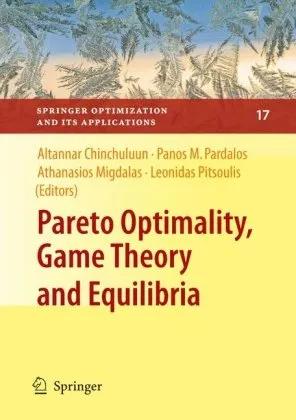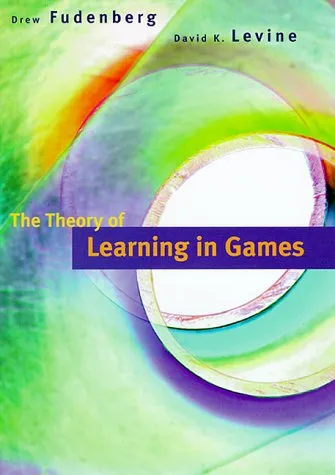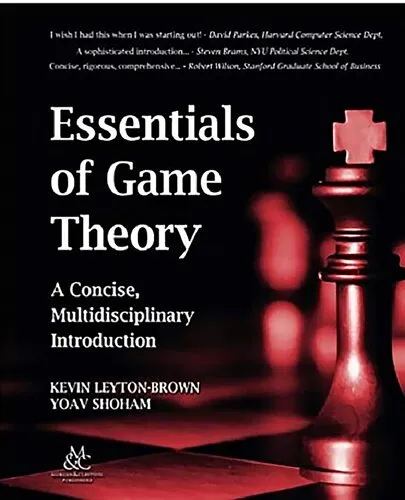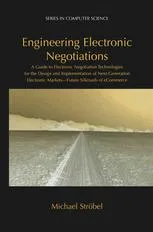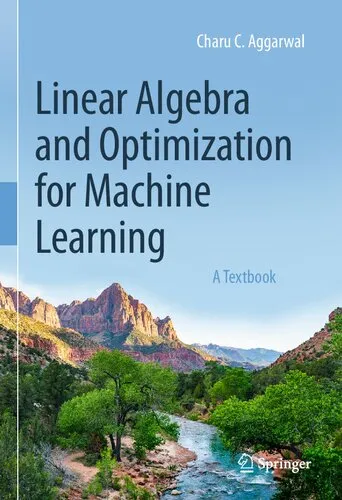Twenty Lectures on Algorithmic Game Theory
4.8
بر اساس نظر کاربران

شما میتونید سوالاتتون در باره کتاب رو از هوش مصنوعیش بعد از ورود بپرسید
هر دانلود یا پرسش از هوش مصنوعی 2 امتیاز لازم دارد، برای بدست آوردن امتیاز رایگان، به صفحه ی راهنمای امتیازات سر بزنید و یک سری کار ارزشمند انجام بدینکتاب های مرتبط:
معرفی کتاب 'Twenty Lectures on Algorithmic Game Theory'
کتاب Twenty Lectures on Algorithmic Game Theory نوشته تیم روفگاردن، یکی از معتبرترین منابع در زمینهی تلفیق مفاهیم نظریه بازیها و طراحی الگوریتمهاست. این کتاب در بیست فصل جامع تدوین شده و مخاطبان خود را با بنیادها و کاربردهای Algorithmic Game Theory آشنا میکند. در ادامه، بخشهای مختلف مربوط به معرفی این کتاب حائز اهمیت ارائه شده است.
خلاصهای از کتاب
این کتاب مجموعهای از بیست سخنرانی است که هریک به یکی از موضوعات باشکوه و تأثیرگذار در Algorithmic Game Theory اختصاص دارد. تیم روفگاردن با ترکیب ریاضیات کاربردی و علوم رایانه، به بررسی مسائلی از قبیل Nash Equilibrium، طراحی مکانیسمها، Auction Theory، شبکهها، و هزینههای اجتماعی ناشی از تصمیمگیری استراتژیک میپردازد.
کتاب به سه بخش عمده تقسیم شده است:
- ارائه مفاهیم بنیادی همچون تعریف بازیها، استراتژیهای مختلط و راهحلهای پایدار مانند Nash Equilibrium.
- تحلیل سیستمهای پیچیده و سنتز الگوریتمهایی که میتوانند در چنین سیستمهایی عملیات بهینهسازی را انجام دهند.
- مطالعه روی دنیای واقعی مانند شبکههای ترافیکی و اینترنت، جایی که تصمیمها و رفتارهای کاربران تأثیر قابل ملاحظهای بر کل سیستم دارند.
تأکید تیم روفگاردن بر ایجاد ارتباط بین مفاهیم بنیادین نظریه بازیها با کاربردهای ملموس در زمینه علوم رایانهای، از جمله بارزترین ویژگیهای این کتاب است.
نکات کلیدی کتاب
- درک دقیق Nash Equilibriums و کاربرد آنها در مسائل دنیای واقعی.
- فهم چگونگی تاثیرگذاری تصمیمگیری استراتژیک بر طراحی سیستمهای الگوریتمی.
- آشنایی با اصول Auction Theory و طراحی مکانیسمهای کارا.
- مطالعه ابزارهای الگوریتمی برای تحلیل شبکههای پیچیده مانند اینترنت و شبکههای ترافیکی.
- تأکید بر هزینه محاسباتی و اجتماعی پایداری در انجام تصمیمهای استراتژیک.
جملات معروف از کتاب
“Algorithmic game theory lies at the intersection of computer science and economics, and has the potential to profoundly impact both fields.”
“The design of algorithms is as much about the incentives of the participants as it is about computational efficiency.”
چرا این کتاب اهمیت دارد؟
کتاب Twenty Lectures on Algorithmic Game Theory نه تنها برای دانشجویان و پژوهشگران در علوم رایانه و اقتصاد مفید است، بلکه برای هر کسی که علاقهمند به مطالعه تقاطعهای بین این دو حوزه است، اهمیت فراوان دارد. با توجه به رشد روزافزون کاربردهای algorithmic game theory در زمینههای مختلف، مانند حراجهای آنلاین، تخصیص منابع، و سیستمهای چندعامل، این کتاب میتواند راهنمای ارزشمندی باشد.
تاکید کتاب بر جنبههای عملی و نظری، آن را به منبعی ضروری برای کسانی که به دنبال راهحلهای محاسباتی کارآمد هستند، تبدیل کرده است. علاوه بر این، با وجود پیچیدگیهای مفاهیم، تیم روفگاردن این توانایی را داشته که موضوعات را به شکلی ساده و قابل فهم برای مخاطبان با پیشینههای متنوع ارائه دهد.
Introduction to "Twenty Lectures on Algorithmic Game Theory"
"Twenty Lectures on Algorithmic Game Theory" serves as an engaging and accessible introduction to the vibrant intersection of computer science and economics. Authored by Tim Roughgarden, a renowned expert in the field of theoretical computer science, this book expertly bridges the gap between algorithm design and game theory, making complex ideas easier to grasp for students, researchers, and even industry practitioners. It offers a deep dive into principled problem-solving techniques with a lens toward applications in modern digital economies, platforms, and systems.
Over 20 meticulously crafted lectures, the book provides a balance between breadth and depth, introducing both foundational theories and their cutting-edge applications. Whether your focus is on auctions, mechanism design, network games, or market equilibria, Roughgarden's approach to algorithmic game theory empowers readers to develop a strong conceptual framework as well as practical tools for tackling real-world computational problems.
Detailed Summary of the Book
The book is organized into 20 chapters, or "lectures," each designed to stand on its own while contributing to a cohesive understanding of algorithmic game theory. Beginning with an overview of game theory fundamentals, such as Nash equilibria and basic auction theory, Roughgarden introduces the idea of computational efficiency and complexity as they relate to economic environments.
As the lectures progress, the book explores more advanced topics like the price of anarchy, smoothing techniques, and network formation games. Central to these lectures is the exploration of how selfish agent behavior influences system-level outcomes and how systems can be optimized through algorithmic means. Key topics include:
- The role of Nash equilibria in algorithm design and its computational tractability.
- Mechanism design and its role in incentive-compatible systems.
- Learning in games and the impact of no-regret algorithms on equilibria.
- Applications to auctions, network routing, and market design.
- Connections between complexity theory and economic behavior.
These lectures are united by recurring themes: balancing theory and practice, understanding incentives, and leveraging computational tools to improve system design.
Key Takeaways
This book is particularly valuable for computer scientists, economists, and game theorists due to its interdisciplinary approach. Here are some key takeaways:
- Incentive Alignment: The practical design of systems like auctions or online marketplaces rests on understanding and optimizing incentives.
- Efficiency vs. Selfishness: Algorithmic game theory provides tools to measure inefficiencies caused by selfish agent behaviors, such as network congestion or resource allocation failures.
- Impact of Computational Complexity: The feasibility of computing equilibria or mechanisms often determines the success of practical solutions in game-theoretic systems.
- Real-World Applications: Concepts like the price of anarchy and truthful auctions are directly applicable to industries like advertising, e-commerce, and telecommunications.
Famous Quotes from the Book
“Selfishness is not necessarily destructive—in fact, much of modern game theory is based on understanding how selfish, rational agents interact.”
“Algorithmic game theory shines brightest when it moves beyond descriptive analysis to contribute to the constructive design of systems.”
“Mechanism design is sometimes referred to as ‘reverse game theory’—it’s the art of designing rules so that rational behavior leads to socially desirable outcomes.”
Why This Book Matters
"Twenty Lectures on Algorithmic Game Theory" is more than a textbook—it's a guide to understanding the essential concepts and methodologies that underlie much of today’s digital economy. With platforms benefiting from auctions, advertising networks, and online marketplaces, this book provides a crucial foundation for understanding the dynamics that power these systems.
As the field of algorithmic game theory continues to expand, its implications grow ever more relevant. From optimizing traffic flow in smart cities to designing cryptocurrencies and blockchain systems, this discipline offers solutions to modern computational, economic, and societal challenges. Roughgarden’s clear writing style, complemented by rigorous explanations and real-world analogies, makes this book an indispensable resource for students and professionals alike.
Whether you're a beginner in the field or an experienced scholar seeking to deepen your understanding of algorithmic game theory, this book provides the knowledge and tools necessary to approach these challenges from both theoretical and practical perspectives.
دانلود رایگان مستقیم
شما میتونید سوالاتتون در باره کتاب رو از هوش مصنوعیش بعد از ورود بپرسید
دسترسی به کتابها از طریق پلتفرمهای قانونی و کتابخانههای عمومی نه تنها از حقوق نویسندگان و ناشران حمایت میکند، بلکه به پایداری فرهنگ کتابخوانی نیز کمک میرساند. پیش از دانلود، لحظهای به بررسی این گزینهها فکر کنید.
این کتاب رو در پلتفرم های دیگه ببینید
WorldCat به شما کمک میکنه تا کتاب ها رو در کتابخانه های سراسر دنیا پیدا کنید
امتیازها، نظرات تخصصی و صحبت ها درباره کتاب را در Goodreads ببینید
کتابهای کمیاب یا دست دوم را در AbeBooks پیدا کنید و بخرید
1431
بازدید4.8
امتیاز0
نظر98%
رضایتنظرات:
4.8
بر اساس 0 نظر کاربران
Questions & Answers
Ask questions about this book or help others by answering
No questions yet. Be the first to ask!
